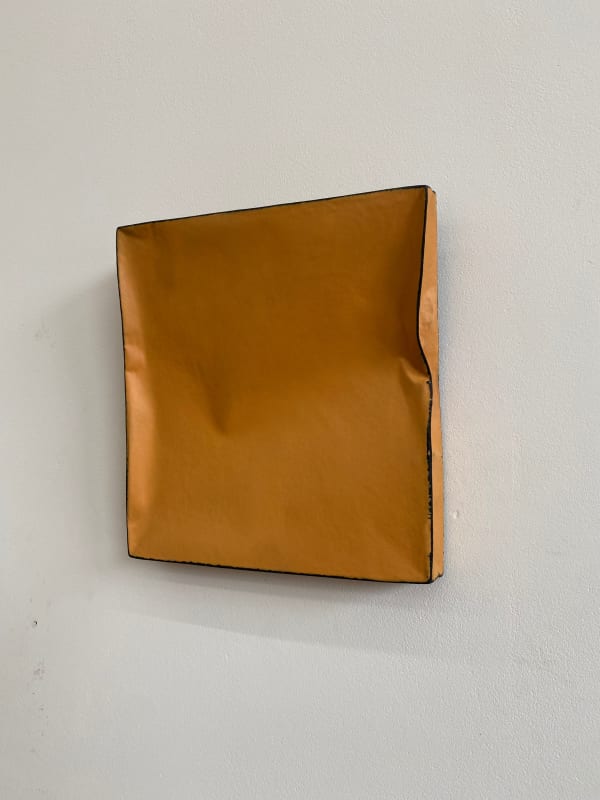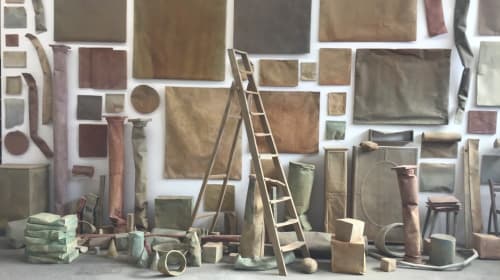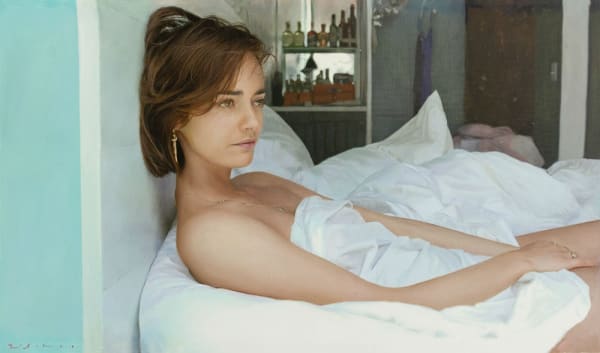Johan de Wit
Form and color form the basis of De Wit’s diverse body of work, which includes sculptures, videos, and painterly objects. His practice generates associations that range from childhood recollections to broader themes of transience and melancholy. Within a restrained and contemplative atmosphere,
De Wit brings together his interest in aesthetic form and the everyday—whether through familiar domestic objects such as a pot, table, or ladder, or through abstract forms with religious or archaeological overtones, such as a disc or triptych.
His work is informed by the traditions of the Flemish Primitives and the Flemish and Dutch masters of the Golden Age, with Giorgio Morandi as another key reference. In these precedents, De Wit identifies the tension between voids and stylization, qualities he translates into his own explorations of materiality, texture, and color. As a result, his objects convey a sense of continuous motion, reflecting the impermanence of lived experience.
The production begins with a paper model, reinforced on both sides with resin and marble powder. During the drying process De Wit manipulates the form to introduce folds and dents, after which multiple layers of paint in varying tones are applied and partially sanded down. This process alternates between concealment and revelation, allowing the surface to register both the history of its making and the play of light across its layers.
Collections:
Museum Voorlinde, Wassenaar
SMAK, Gent
Collectie Sanders
Nationale Bank van België, Brussel
Stichting Mu.Zee, Oostende
-

VOLTA' 19 Basel
10 - 15 Jun 2019VOLTA Basel was founded in 2005 as a collaboration between dealers and friends, aiming to secure a platform for international galleries beyond young art stalwart Liste and market heavyweight Art...Read more -

Untitled, Art. Miami Beach 2018
5 - 9 Dec 2018Untitled, Art is an international, curated art fair founded in 2012 that focuses on curatorial balance and integrity across all disciplines of contemporary art. Untitled, Art innovates the standard fair...Read more -

Art on paper
Amsterdam 13 - 16 Sep 2018At Art on Paper Amsterdam, 34 selected galleries from all over the Netherlands will concentrate on work on paper by their artists. The fair takes place in the industrial-monumental Zuiveringshal...Read more
















